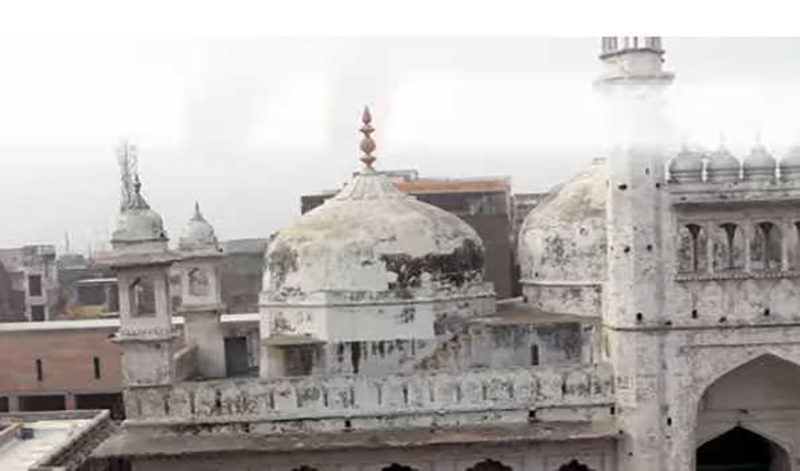Allahabad HC allows Hindu puja at Gyanvapi Mosque cellar

Prayagraj/IBNS/UNI: The Allahabad High Court on Monday allowed Hindu puja to take place at the cellar of Gyanvapi Mosque, which is located in Uttar Pradesh's Varanasi, media reports said.
The high court has dismissed the Gyanvapi Mosque committee's plea challenging the Varanasi district court's decision to allow the Hindu puja at the cellar.
Justice Rohit Ranjan Agarwal said as quoted by Hindustan Times, "After going through the entire records of the case and after considering arguments of the parties concerned, the court did not find any ground to interfere in the judgment passed by the district judge dated 17.01.2024 appointing DM, Varanasi as receiver of the property as well as the order dated 31.01.2024 by which the district court had permitted Puja in the Tehkhana."
In a big win for the Hindu side in late January, the District Court had directed Varanasi District Magistrate in north Indian state of Uttar Pradesh to make arrangements for the worship of idols seated inside the basement situated on the south side of the Gyanvapi complex.
Varanasi District Court's order
The court had ordered, "District Magistrate Varanasi and Receiver are directed to perform puja, Raag-Bhog of idols located in the basement on the south side of the building of settlement plot number 9130, which is the suit property, by a priest named by the plaintiff and the Kashi Vishwanath Trust Board.
"Get the puja and Raag-Bhog performed and make proper arrangements for the iron fence within 7 days for this purpose."
Counsel of Hindu side Madan Mohan Yadav said that in 2023 Shailendra Kumar Pathak filed an application that puja of idol situated in the basement of the south side of the temple was being done, but after December 1993, the priest Vyas was prevented from entering the barricaded area of the said premises due to which rituals of Raag-Bhog also stopped.
The applicant stated that there was an adequate basis for believing that priest Vyasji was in possession of the said place on a hereditary basis even during British rule and performed puja until December 1993 in the said building. It was pleaded that it was necessary to perform puja on the idols present in the basement on a regular basis.
The applicant stated that the state government and the district administration have stopped worship inside the basement since December 1993 without any legal authority.
The application was opposed by the defendant, who claimed that none of the members of the Vyas family ever performed puja in the said basement; therefore, there was no question of stopping in December 1993. It was stated that there was no so-called idol at the said place.
It was claimed in the plaintiff's statement that the Vyas family had the basement, and it was in the possession of the Intezamia Committee. It was claimed that there was no idol of the deity in the basement, and in such a situation, directing any receiver to make arrangements for puja was not justified.
The court observed, "In my opinion, keeping in mind the above material, it seems appropriate that the Receiver and the District Magistrate, Varanasi, should be directed to make arrangements for puja and Raag-Bhog of the idols in the basement on the south side of the building by a priest named by the plaintiff and by the Kashi Vishwanath Temple Trust, for which proper arrangements of iron fencing should be made within 7 days."




